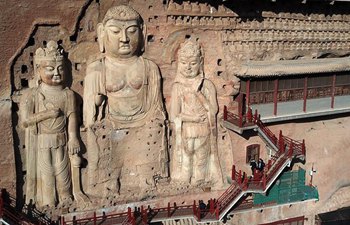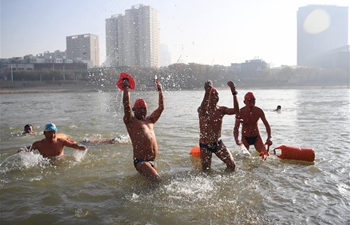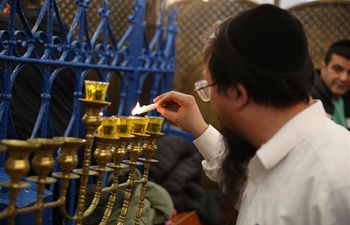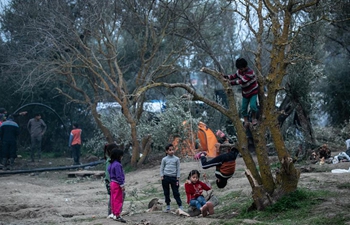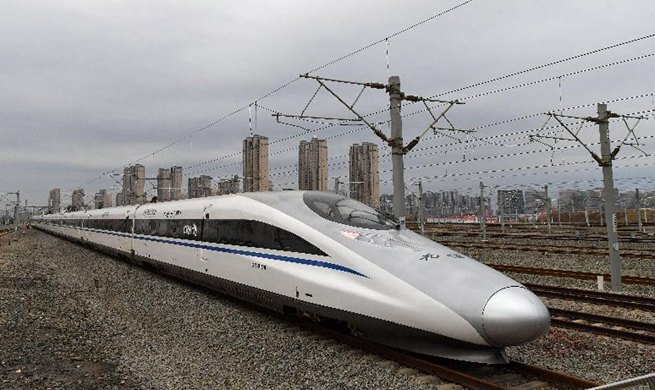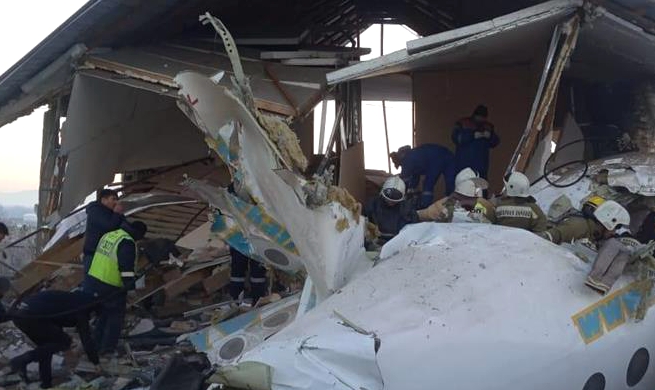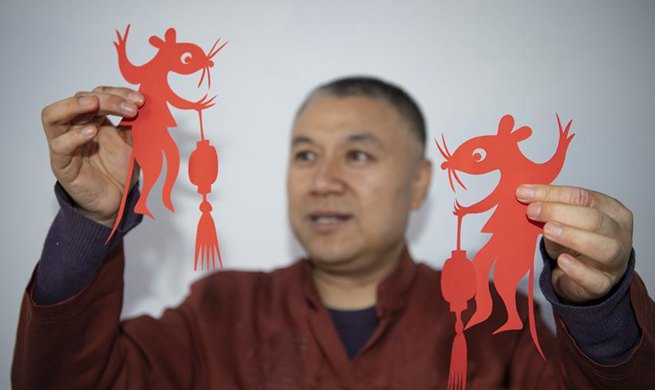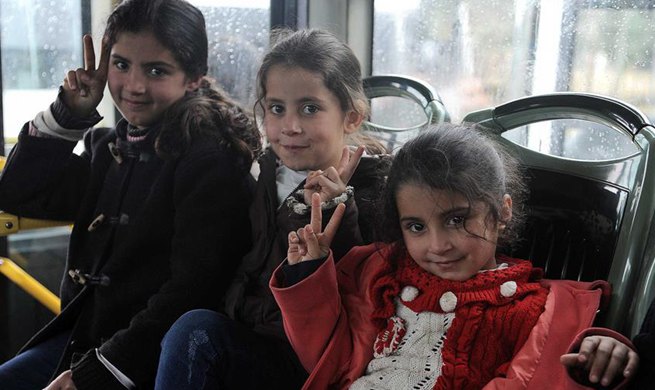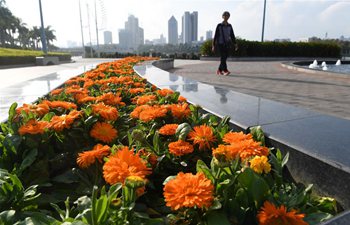by Sanaa Kamal
GAZA, Dec. 27 (Xinhua) -- A Palestinian engineer has recently created a method to turn piles of waste in the Gaza Strip into construction materials.
Husam al-Aqraa, 46, burns the waste and uses the ash to produce building blocks, which are lighter in weight than the ordinary ones.
Al-Aqraa, from Jabalia, a refugee camp in northern Gaza Strip, started his self-financing project to help the community recycle the waste into useful materials.
Gaza is suffering from acute garbage issue. According to a 2018 report by the Palestinian Central Bureau of Statistics, the average household waste in the Gaza Strip stands at 716 tonnes. About 80 percent of the garbage there is organic waste.
"The situation is so bad that the garbage will soon occupy large swaths of land, meaning that we will have little space to build new houses," said al-Aqraa, as he pours a bag of ash into a brick-making machine.
"One tonne of waste can be used to produce up to 250 bricks," he said, adding that the cost of making the waste-turned building materials are about the same as the ordinary ones.
The engineer said the incineration of waste produces ash, flue gas and heat. "The ash is mostly formed by the waste's organic constituents, which can be turned to building materials," he said.
The flue gases must be cleaned of gaseous and particular pollutants before they are dispersed into the atmosphere, he added.
"It's a nonprofit project," al-Aqraa said.
"The method is not new in the world. It was proceeded in Sweden and France," he said.
"We have a huge amount of accumulated garbage in the Gaza Strip, but we do not have a strategic plan to recycle it into helpful and eco-friendly materials", al-Aqraa said, while pointing to piles of waste beside.
He bemoaned that the situation in Gaza has been deteriorating due to the Israeli blockade imposed on the Gaza Strip since 2007.
"People in the Gaza Strip are suffering a lot from cutting off electricity supply for several hours during the day for more than 12 years," he said, claiming that the local authorities seemed to have failed to tackle the issue.
The heat generated by the incineration can be used to generate electricity, but such a project requires support from authorities, he said.
Al-Aqraa plans to promote the project in the Gaza Strip, one of the most densely populated areas in the world, with over 2 million Palestinians living on 365 square km of land.
"We should find ways to solve our problems," he said.
In general, garbage in the Gaza Strip is collected in three main landfill sites, including Gaza, Dir al-Balah and Khan Younis, which gather stray animals that may transmit diseases to humans.






